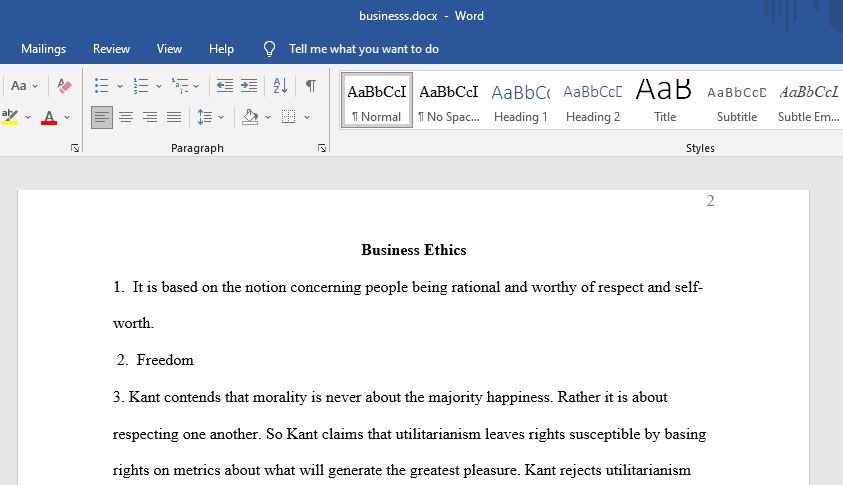What does Immanuel Kant’s account of duties and rights depend on?
2. Which of Sandel’s 3 categories does Kant’s methodology fall into?
3. Why does Kant reject utilitarianism?
4. For Kant, what is the connection between our capacity for reason and our
capacity for freedom?
5. What does Kant mean by “freedom?”
6. What is the link between freedom as autonomy and Kant’s idea of morality?
7. For Kant, what does it mean to respect human dignity?
8. For Kant, what gives an action moral worth?
9. What does Kant mean when he argues that only the principled position is in
line with the motive of duty, the only motive that confers moral worth on an
action?
10. Would Kant decide that the spelling bee student did something that was
morally worthy? Why or why not?
11. For Kant, what is the supreme principle of morality?
12. What is the role/work of reason, according to utilitarians?
13. What is Kant’s understanding of reason?
14. What is a hypothetical imperative, according to Kant?
15. What is a categorical imperative, according to Kant? (Note—please make
sure that you don’t just quote the book here, but that you really understand
what the book is explaining.)
16. Can you explain the first formulation of the categorical imperative in your
own words?
17. Can you explain the second formulation of the categorical imperative in your
own words?
18. For Kant, what does justice require in our treatment of other human beings?
19. How are acting autonomously and morally the same thing in Kant’s mind?
20. Why isn’t Kant’s categorical imperative the same as the Golden Rule?
21. Note—when Sandel is describing Kant and the issue of creating or following
one’s own law, while making it a universal, he is saying this not because
every individual person makes their own individual set of laws. He is saying
this because there is a universal law in existence that we can all figure out
using reason. We will all decide that our duty in a situation is the same as
what everyone else figures out, because things are simply right or wrong in
and of themselves—by their nature. Do not mistake Sandel to be saying that
everyone makes their own individual laws and follows them and
universalizes them, even if they are different from others. If you use reason,
they will not be different from others if the process is completed properly.
This is explained a bit further on the bottom of 127, but is never clearly
explicated in my opinion.
22. Sandel goes on to give various examples relating to casual sex, teeth
extraction and prostitution. As you read through these examples, please try
to consider the arguments as a way of more fully understanding Kant’s
thought. Do not focus on your own agreement or disagreement with what he
is saying or arguing for right now.
23. You can stop reading at mid-134.
Answer preview:

word limit:1716
